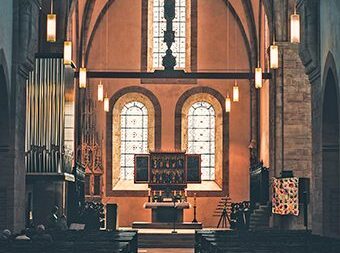Many years ago, in the mid-1950s, Fr Trevor Huddleston of the Community of the Resurrection, then rector of the Anglican parish of Christ the King, Sophiatown, at the height of apartheid oppression, warned about the church sleeping through a revolution.
He said, “the church sleeps on”, and more pontificating than engaging in social action or discourse to challenge unjust political injustices of the day.
The church, in his estimation, slept on because it lacked an aggressive response to apartheid’s injustice and oppression – but rather promised the faithful that their liberation and justice would come in the afterlife.
Such strategy, and belief, he argued at the time, should be debunked, and that justice for all is what the church ought to struggle for, and that the “kingdom of justice” must be realised in this lifetime, and not afterlife.
Huddleston, who was a superintendent at the Anglican boys’ school, the famous St Peter’s Secondary School, Rosettenville, a home to former ANC president Oliver Reginald Tambo both as a student and teacher – saw no contradiction in being a Christian and a political animal.
The National Party had been in power for a few years after snatching an electoral victory to unseat the United Party in 1948, getting a massive mandate, more especially from the poor white people, to engage in a programme of total disempowerment of black people in all spheres of life, including the economy.
Huddleston would defy his community and the superior of his community in Mirfield, England, by engaging actively, as an Anglican monk, in the politics of the ANC, joining the organisation in the 1950s, and fully committing his energy to its programmes of undermining the hegemony of the unjust apartheid system.
Was it not strange that an Englishman, born in Britain, brought to South Africa as a missionary, took interest in the politics of this country, and wholly committed to the unseating of the unjust system, working with the liberation organisation?
Was it not surprising that he would join forces with the young Tambo, a lad who was a student at his college, to fight an injustice propagated by the apartheid system – a young man who would later become the ANC’s longest serving president in exile?
The irony of it all, as it turned out, was that master and student, subsequently became great political comrades, working together, and mobilising the international community, to fight for the eradication of the nightmare that the apartheid system had become to black South Africans.
And today, how should the church react to a governing party that is failing to ascribe to the ethos of a constitutional democracy?
The 19th century author WG Ward, writing on what the true church ought to look like, wrote: “The church ought to be the poor man’s court of justice.”
It seems the author’s words square with Huddleston’s thinking.
Throughout his life, he immersed himself in the politics of justice and human rights through the propagation of liberation theology, and challenging all that was unjust in society.
Today the country faces deeper challenges of economic meltdown, social instability, violence and complete breakdown of the rule of law and misgovernance, which is steering the country in the wrong direction.
Yet, the church sleeps on and continues in its slumber of being silent amid multiple crises facing the country.
The Transnet failures and its inefficiency; the poorly managed ports; the congested roads prohibiting quick movement of goods, all impact on the economy whose reliance on exports to generate foreign currency cannot be overlooked.
Politicians cannot always be trusted. They speak in forked tongues, and if for anything, for self-interest, and self-interest only.
Their untrustworthiness must be tampered by a variety of social voices and prophetic voices of the church, whose relevance is enhanced by agitating for a better world of justice and equity.
The scandal of a poorly run government, and the corruption that is endemic in it, with the presidency that is paralysed by indecision, must be challenged.
The country requires social action by the church and other community structures working collaboratively to end the inert administration that is failing to be a beacon of hope and light for the nation.
- Mdhlela is Sunday World acting news editor, an Anglican priest and former editor of the South African Human Rights Commission journals.



